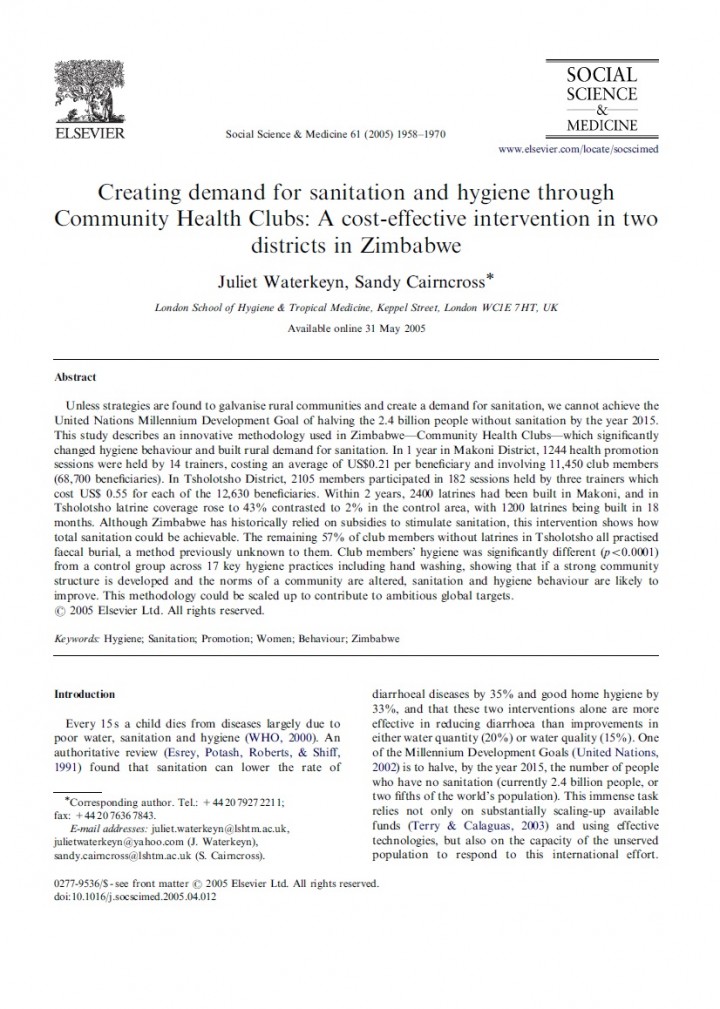Creating Demand for Sanitation and Hygiene Through Community Health Clubs A Cost-Effective Intervention in Two Districts in Zimbabwe Waterkeyn, J., Cairncross, S. (2005)
Unless strategies are found to galvanise rural communities and create a demand for sanitation, we cannot achieve the United Nations Millennium Development Goal of halving the 2.4 billion people without sanitation by the year 2015. This study describes an innovative methodology used in Zimbabwe—Community Health Clubs—which significantly changed hygiene behaviour and built rural demand for sanitation. In 1 year in Makoni District, 1244 health promotion sessions were held by 14 trainers, costing an average of US$0.21 per beneficiary and involving 11,450 club members (68,700 beneficiaries). In Tsholotsho District, 2105 members participated in 182 sessions held by three trainers which cost US$ 0.55 for each of the 12,630 beneficiaries. Within 2 years, 2400 latrines had been built in Makoni, and in Tsholotsho latrine coverage rose to 43% contrasted to 2% in the control area, with 1200 latrines being built in 18 months. Although Zimbabwe has historically relied on subsidies to stimulate sanitation, this intervention shows how total sanitation could be achievable. The remaining 57% of club members without latrines in Tsholotsho all practised faecal burial, a method previously unknown to them. Club members’ hygiene was significantly different (po0:0001) from a control group across 17 key hygiene practices including hand washing, showing that if a strong community structure is developed and the norms of a community are altered, sanitation and hygiene behaviour are likely to improve. This methodology could be scaled up to contribute to ambitious global targets.
Bibliographic information
Waterkeyn, J., Cairncross, S. (2005). Creating Demand for Sanitation and Hygiene Through Community Health Clubs A Cost-Effective Intervention in Two Districts in Zimbabwe Elsevier Ltd.
Filter / Tags
Guidelines and manualsCase studies in other formatsEnglish
Downloads
Creating Demand for Sanitation and Hygiene Through Community Health Clubs
Type: application/pdf
Size: 0.24 MB

